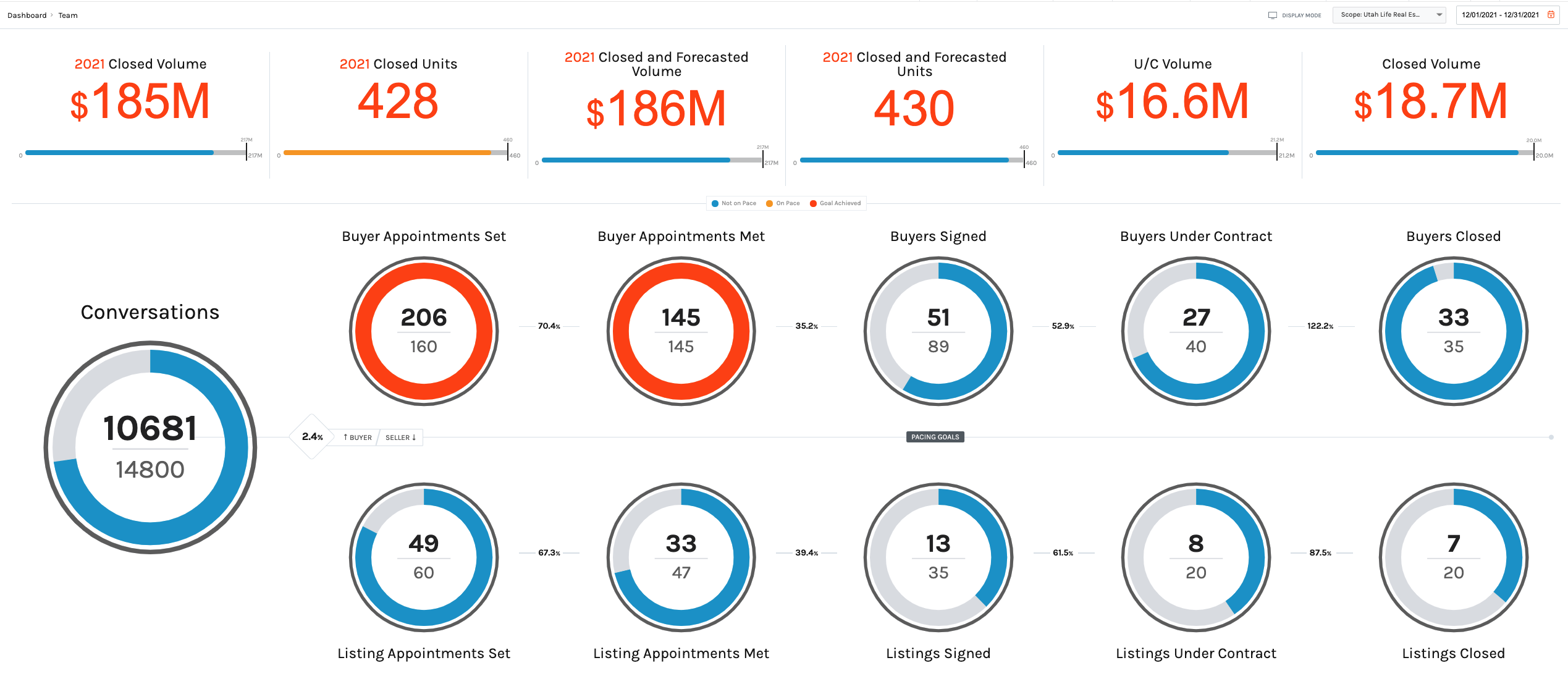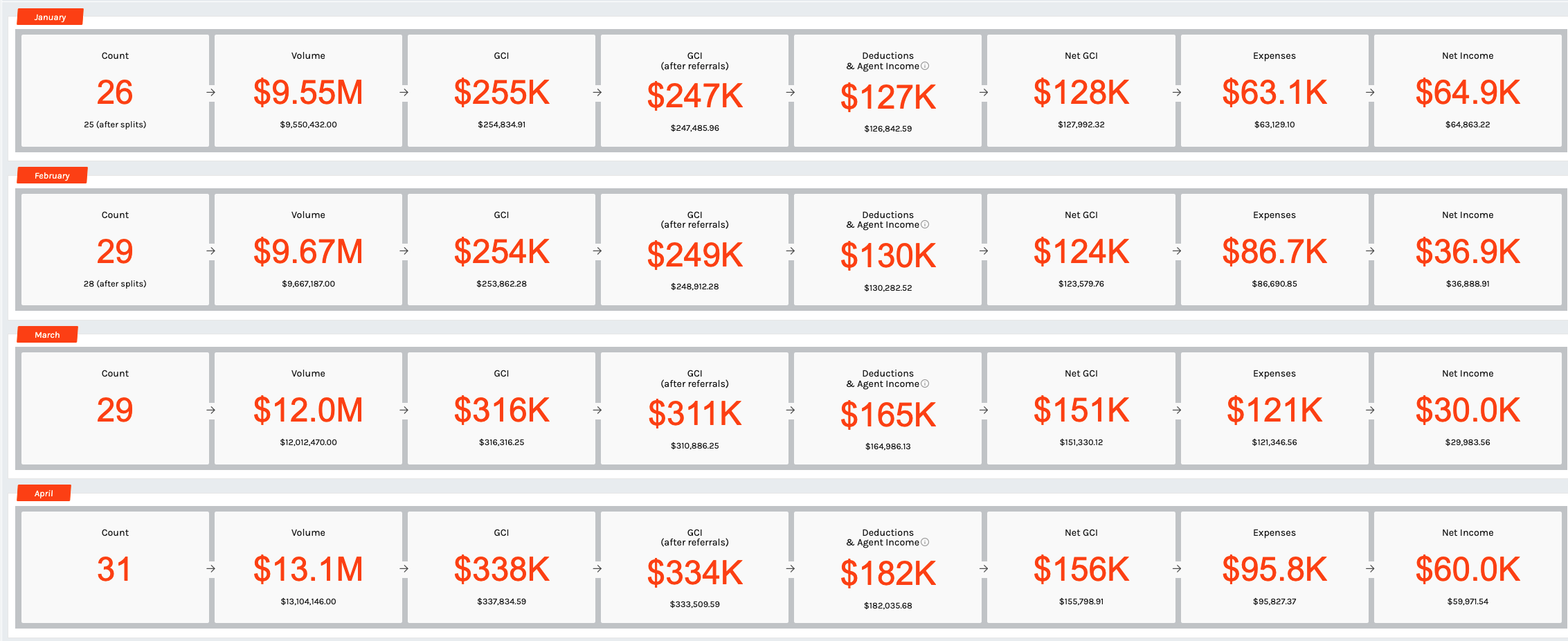One thing I love about the new year is the fresh intensity we see in our team, and in the teams we work with.
And I find myself thinking "how can we keep this intensity, year round?"
It reminds me of an analogy I heard at a mastermind event a few years ago, right when Sisu was getting off the ground.
What would happen if, in the middle of an intense sporting event, the scoreboard suddenly went out?
Would there even be an “intense” game if it weren’t for the scoreboard?
The entire meaning of the game is tied to the scoreboard. That’s what makes the NBA and other sporting organizations worth billions as a source of entertainment rather than just a couple of guys running around shooting hoops. Without a score, there’s no competition. There’s no measure of performance, and any attempt at progression becomes difficult.
I’ve found that the same theme separates successful and unsuccessful real estate businesses.
The top producers know the score, their objective, and how to dominate the competition. The unsuccessful teams are just a group of people running around trying to sell a few houses.
The Two Levels of Scoreboards
When I go see an NBA game (which is pretty frequently), there are two scoreboards I’m focussed on―the main scoreboard, which only shows the score, and the ones in the corner that break down the performance of every single player.
Looking at the first tells me who’s winning. But, if I want to understand what’s happening in the game, I need to look at the second. That tells me who’s performing, who isn’t, and specific stats relevant to each team.
But there's a reason the simple one is front and center. Because simplicity is powerful. There's nowhere to get lost. Someone can walk into the game and know exactly where each team stands on what actually matters.
Real estate leaders need both kinds of scoreboards to grow their business.
Most leaders will at least keep track of closed units and volume, but these only tell a fraction of the story. There is so much more data that can be utilized when teams have systems in place to capture data, analyze it, and break down the score.
We've worked with a couple thousand teams on their scoreboarding and this powerful piece of advice still holds true:
Simplify what you present to your team, and amplify what you break down alone, in your office, or on your phone, after hours.
The first will create powerful direction for your team. It leaves them no room to get lost, like the main scoreboard at the NBA game.
The second will give you powerful vision, insight and direction as a leader.
What are the most important KPIs to track for real estate teams?
This one seems broad but it's actually pretty simple.
It's something so clear, that almost all the coaching companies I've worked with agree on it. There are six main metrics that really matter for your main scoreboard.
- Conversations with prospects
- Appointments set
- Appointments met
- Clients signed (BBAs/Active Buyers or Signed Listing Agreements)
- Transactions put under contract
- Transactions closed

Just about everything you need to know about whether you're winning or losing is contained in those six metrics. That's why it's perfect for your main scoreboard.
Your more in-depth scoreboards and reports can get much more complex. Here are some that I recommend keeping a pulse on:
- Lead Source ROI
- Lead Source ROI per agent
- GCI>Net Team Income>Net Profit, month over month each year
- Vendor usage breakdowns (mortgage, title, home warranty, home insurance, etc.)

Focus on the highest dollar activities
Every leader realizes, at some point, that certain activities aren't worth their time.
If your earnings/hour is $500/hr, and you mow the lawn yourself, you didn't just save $40 bucks. You lost $460.
This is important for this discussion because:
1) Analyzing your numbers and scoreboards is atleast $500/hr activity.
2) Spending time managing spreadsheets, formulas, and reports to get those numbers is absolutely not a $500/hr activity.
At the very least, you can pass that off to a team member to manage in a spreadsheet. But even then, it might wear down on them and reduce their overall productivity.
If you're really smart, you'll take advantage of the platform we spent millions of dollars to develop, which has all the dashboards and scoreboards we're talking about above.
Speak with one of our scoreboarding experts.








.png)


